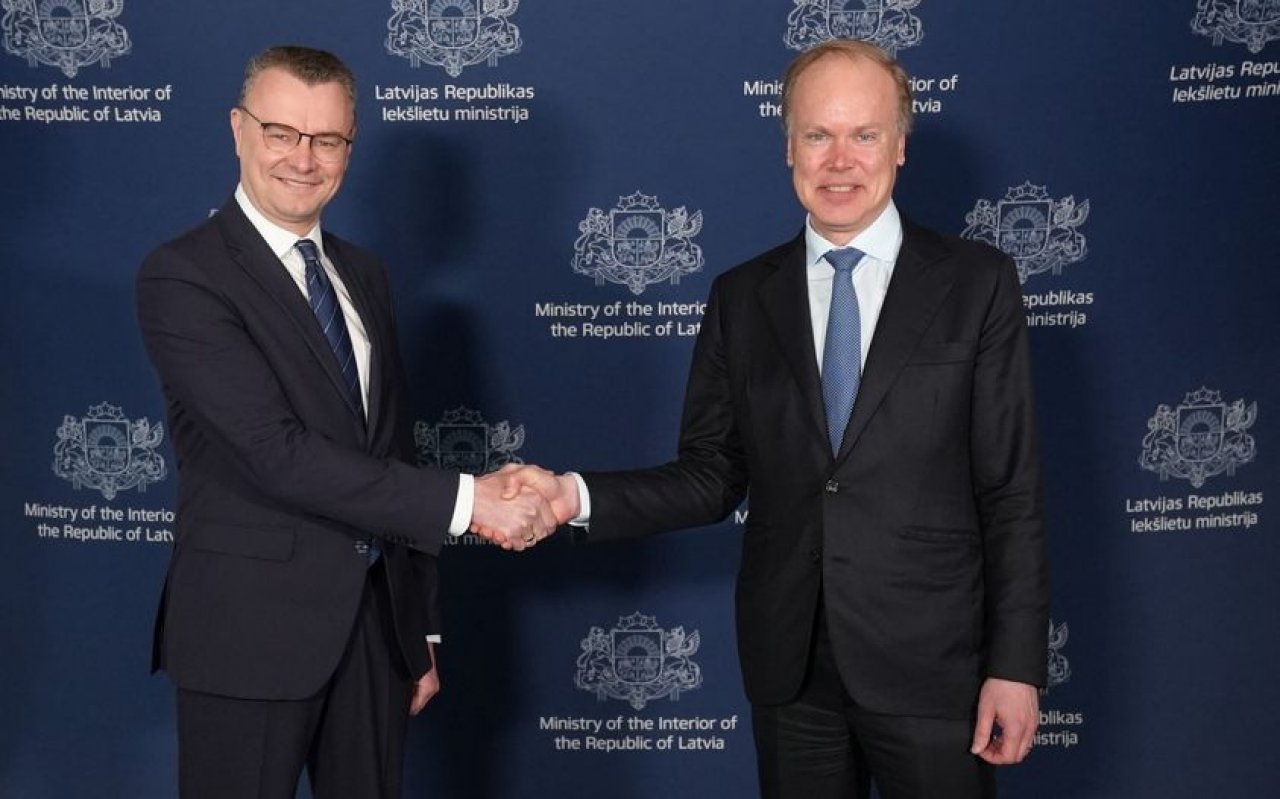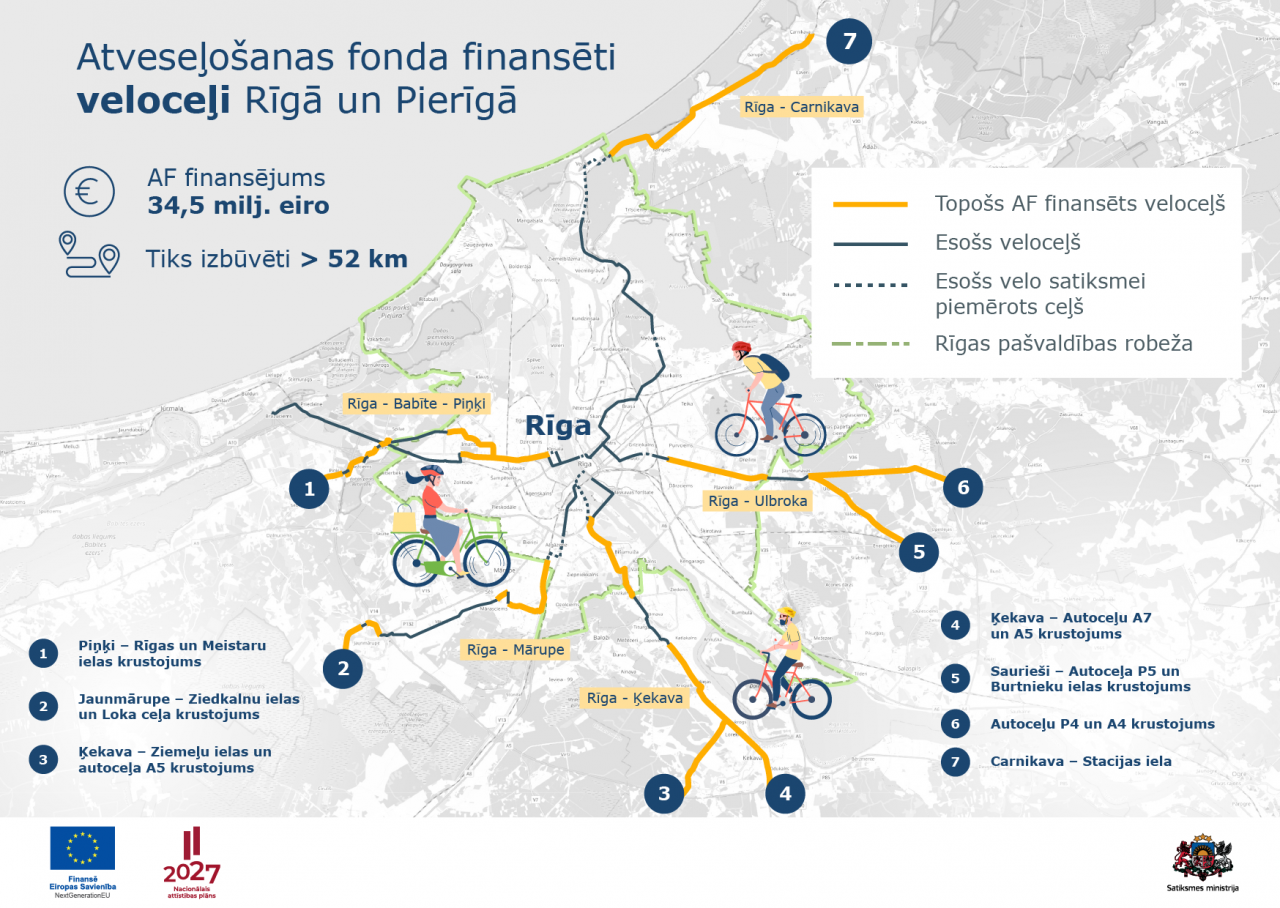The Cohesion Policy should bring visible results
 Deputy State Secretary on EU Funds Issues Armands Eberhards
Deputy State Secretary on EU Funds Issues Armands Eberhards
The Cohesion Policy is one of the most important European Union (EU) investment policies. Its goal is to reduce disparities in economic development and living conditions in Europe. Undoubtedly, in current economic situation European and also Latvian citizens expect a lot more from the Cohesion Policy than before. It is, therefore, our task to ensure that each invested euro brings the biggest possible added value to welfare and economic growth of Latvian citizens.
It is now 11 years since Latvia joined the EU, and, looking back at that time, we see that our country has experienced both economic improvements and serious downturns. The Cohesion Policy has been an integral part of the Latvian economic development strategy since the accession to the European Union in 2004. Then GDP per capita in Latvia was only 48% of the EU average, but in 2014 it reached 64%. It proves that despite the economic crisis during this period Latvia has approached the EU average level of life.
At the time when our country experienced the economic crisis with 20% GDP reduction and high unemployment rate across the entire country, Cohesion Policy investments were 70% of all public investments. During this period, the Cohesion Policy helped us to adjust to new challenges, so that already in 2011 it could return to the path of sustainable development with effective fiscal policy and EU funds resources successfully implemented in the sectors bringing the biggest return.
The 2007–2013 EU funds programming period in Latvia has successfully resulted in 930 kilometres of reconstructed roads and streets, 52 kilometres of constructed railway, implemented environmental projects – 1.2 millions of Latvian citizens have been provided with a modern connection to the waste water collection, support has been provided to more than 1180 companies in business incubators, requalification and further education has been provided to almost one and a half hundreds of thousands unemployed persons and jobseekers, at least 400 public internet access points have been established and a lot of other contributions have been made.
Now we are in the beginning of the new 2014–2020 EU structural funds and Cohesion Fund programming period and our common goal is to ensure that the “European money” is used as effectively as possible in the new programming period. Results achieved in previous programming periods prove that EU funds resources are a very important source of investments without which it is hard to imagine economic, infrastructure and business development.
Also in current intense economic situation and in view of central and local government budget possibilities EU funds are important resources that should be quickly and systematically invested in the economy. We should achieve that the implemented projects ensure a tangible economic lunge. In current economic situation, great hopes have been put on the Cohesion Policy and it should bring visible results.
Taking into account experience of previous periods, in the new EU funds programming period we will be even more focused and will pay more attention to justified and well-weighted investment planning and to achieve clear, transparent and measurable investment results. In the Operational Programme “Growth and Employment”, a narrower scope of priority axes has been defined to focus more on resolving the most important issues.
To make easier project application and implementation for EU funds beneficiaries in the new period a number of requirements have been simplified and the bureaucratic burden has been reduced. Thus, project implementers will be able to focus more on the achievement of project results. With the approach of one cooperation institution, a standardized project application form will be provided, common practice for project controls will be ensured as well as simplified expenditure will be introduced. Besides, we will use e-possibilities as much as possible, including through E-Cohesion that will allow submitting projects and receiving consultations in the electronic environment.
With support of EU funds by 2020 at least 2500 new jobs will be created, 37 thousand young people will acquire qualification, skills and experience matching labour market needs. 80 thousand children and young people from poor and low-income families will receive support to promote accessibility of education, as well as investments will be made to improve and modernize education infrastructure at all levels of education.
Significant investments will be made also in business and innovation providing support to more than 3000 companies and increasing the proportion of innovative entrepreneurs by more than 10%. Everyday life of citizens will be improved with EU funds investments – 206 000 households will have access to broadband internet[1], 35% of citizens and 92% of companies will use e-services, as well as approximately 70 kilometres of heating networks will be reconstructed thus the average heating energy consumption will decrease by one fifth.
Each Latvian citizen will feel EU funds investments in infrastructure because in this period with EU funds resources more than 919 kilometres of roads will be reconstructed and more than 900 kilometres of railroads will be either reconstructed or modernized. In addition, EU funds investments will be focused on environmental protection and energy efficiency, including through investments in sewerage system quality improvements, as well as culture and natural heritage, at the same time providing support to arrange the urban environment, facilitate business development in municipalities and regions of Latvia.
All of the above mentioned investments and results to be achieved are defined in the Latvian Operational Programme “Growth and Employment” with 9 priority investment axes. At the same time during the entire period the work of institutions involved in EU funds management is done according to the Operational Programme Complement or calendar time schedule for the preliminary actions to be carried out by the line ministries.
I am sure that with good management and administrative capacity, as well as successful cooperation of all involved partners we will be able to achieve goals of the Cohesion Policy and ensure that in the new programming period contribution of EU funds investments will be felt by every Latvian citizen. Now it is important that each line ministry continue the ongoing work responsibly and with full blast preparing a regulation of the Cabinet of Ministers on specific support goals to invest financial resources as effectively and efficiently as possible in line with the specifics of the particular sector.
[1] Rural households having access to broadband services with at least 30 Mb/s data transfer speed.
 Deputy State Secretary on EU Funds Issues Armands Eberhards
Deputy State Secretary on EU Funds Issues Armands Eberhards
